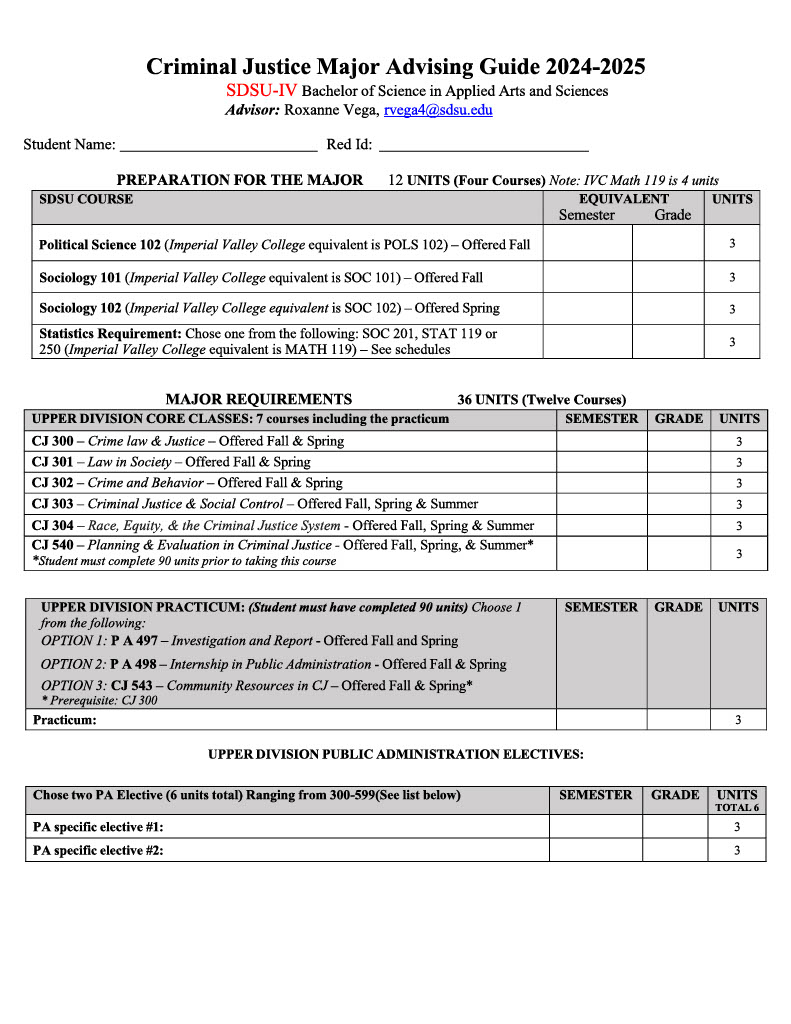Criminal Justice - Bachelor of Science
Click above image to download the SDSU Imperial Valley Criminal Justice Brochure
Students who choose the Criminal Justice major at SDSU Imperial Valley (SDSU-IV) study the development, functions, and structure of the criminal justice system and how it attempts to control crime and delinquency in our society. In the course of study, students gain a more complete understanding of the complex nature of crime, the contemporary issues facing criminal justice practitioners, and the effectiveness of the criminal justice system’s efforts to prevent and control crime in American society.
The Criminal Justice major will appeal to students interested in preparing for a career in policing, corrections, law, or a related field. This degree is especially beneficial to those currently working in the criminal justice field seeking career advancement. Lower-division coursework for the Criminal Justice major includes courses in sociology, statistics, political science, and government. Upper-division coursework includes classes in law and society, criminal behavior, systems of justice, and criminal justice policy and planning. Criminal justice electives are offered in the areas of correctional administration, court administration, juvenile justice and delinquency, and law enforcement. Once you complete your degree, you will have many career options in the public and private sectors, as well as the opportunity to pursue a graduate degree including law school.
Faculty |
|
| Dr. Sambuddha Ghatak | [email protected] |
| Dr. Jeffery Osborne | [email protected] |
| Judge L. Brooks Anderholt | [email protected] |
| District Attorney George Marquez | [email protected] |
| Dr. Michael Braun | [email protected] |
| Jason Amavisca, JD | [email protected] |
| Gabriel Lam, LCSW | [email protected] |
Advisor
Roxanne Vega
Schedule Appointment - Roxanne Vega
SDSU Imperial Valley Criminal Justice Advising Guide with Pathways
Click image above to download the SDSU Imperial Valley Criminal Justice Advising Guide with Pathways
Graduation Writing Assessment Requirement
Students must pass the Writing Proficiency Assessment (WPA) with a score of 10 or above, or complete one of the approved upper division writing courses with a grade of C (2.0) or better.
Useful Resources
You can view more detailed information regarding the Criminal Justice major in the SDSU General Catalog. All students are responsible for reading and knowing the information pertinent to their areas of study. The SDSU General Catalog contains requirements for all academic majors, course descriptions, policies, and regulations governing progress at the University. Catalogs are distributed at all New Student Orientation events.



